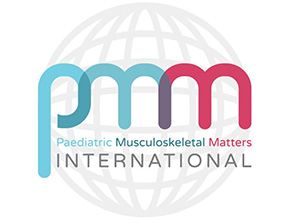Updated PRES recommendations for coronavirus outbreak
Date: 21.09.2020
PReS would like to share important recommendations for patients, families and doctors in the context of the COVID-19 pandemic. September 2020 update.
1. Be updated and follow your country’s Ministry of Health/National Public Health Care Body’s recommendations.
2. Ensure you meticulously follow all hygiene recommendations.
Simple measures are likely to help preserve your health and that of your family and friends:
• Wear a mask. Practice social distancing. At least 1.5 meter is recommended
• Avoid touching your face.
• Coughing or sneezing should be into an elbow or tissue paper and the latter should be discarded safely.
• Wash your hands very regularly for at least 20 seconds using soap and water. Dry hands thoroughly afterwards.
• Use disposable tissues.
• We should greet each other without shaking hands, and avoid hugs.
3. Current available scientific data shows lower disease incidence, and morbidity among children. Therefore, we recommend at present that children with rheumatic diseases on medication continue all therapies as usual.
Do not stop taking your medications, including methotrexate (MTX) and biologics, without consulting your rheumatologist. This may cause a flare of your rheumatic disease.
Be aware that at this stage, recommendations may vary from one country to the other.
4. If you are on corticosteroid therapy, consult your rheumatologist regarding possible dose adjustment
5. Follow your country’s Ministry of Health/National Public Health Care Body’s/Ministry of Education recommendations regarding school participation and activities.
Current knowledge shows that patients receiving MTX or biologics (anti TNF, anti IL-1, anti IL-6) as a monotherapy or a combination of MTX and anti-TNF medications, or Mycophenolate, cyclosporine, are not considered to be at increased risk of contracting Corona or having a severe disease. They can attend school, educational and social activities with the precautions mentioned above.
Consider that paediatric rheumatic patients might be at higher risk for COVID-19 if they are receiving corticosteroids >0.5 mg/kg/d or immunosuppressive treatment, such as cyclophosphamide, and rituximab. In this case, consult your paediatric rheumatologist.
6. Patients in isolation or quarantine (without symptoms) should continue therapy as usual.
For asymptomatic patients who tested positive for COVID-19, ask your physician if you should continue or stop treatment. Based on current knowledge, you can probably continue therapy.
7. In case of fever and suspicion of an infectious disease, follow your country’s advice for access to healthcare and to test for COVID-19. In the meantime, stop MTX and, if taking biologics, contact your treating rheumatologist for guidance.
If you are symptomatic and positive for COVID-19, consult your physician regarding continuing medications.
8. In the event that you have a routine rheumatology appointment consider to ask your primary care physician, or rheumatologist if this is essential, or if it can be performed by telephone or another remote device ("telemedicine"). This facility may vary in availability across different health care settings.
9. Everyone, including patients with paediatric rheumatic diseases, avoid unnecessary travel and crowds.
10. Wishing you good health and that we should all be back on our regular track soon.
There are 2 running updated registries for COVID-19. See below:
Physician registry
PRES encourages all paediatric rheumatologists who have seen or are aware of a case of COVID-19 infection in any child with a pre-existing rheumatic disease to report it here https://www.eular.org/eular_covid19_database.cfm
Parent-patient registry
www.jarproject.org/covid
Download recommendations as PDF



